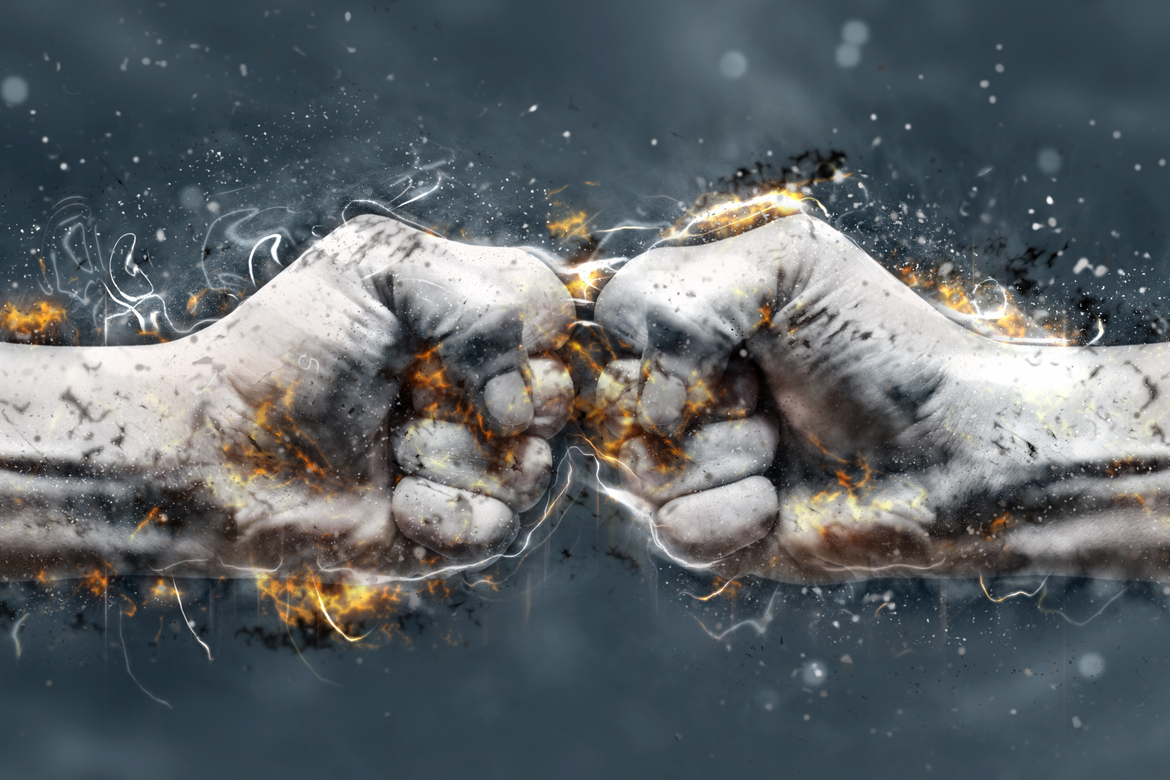The drama has been simmering for a lifetime. Twin brothers who grew up in the same home to the same parents could not have been more different. One was destined to become the father of the Twelve Tribes and the Jewish people, the other to be the patriarch of mighty nations like Rome. In our parashah, Jacob, on the run for years, is finally forced face his brother, his own survival questionable. But before they meet, Jacob faces a major struggle with a mysterious “man.” Our Sages reveal his identity as Esau’s guardian angel, the embodiment of his very spirit.
Although the angel tries to physically assault Jacob, the essence of their fight and Jacob’s struggle is really about the underlying spiritual warfare that will take place until the end of days. The Jewish people would rise to awesome heights and build the Holy Temple in Jerusalem, but this would seem like only a moment in time compared to the lengthy exile at the hand of the Romans.
Each of us faces daily troubles, hardships and struggles, causing us tremendous pain and suffering. The prophet says, “In all of your troubles, He suffers” (Isaiah 63:9). We experience so much pain precisely because of the exile; our discomfort is a sign of God’s exile from our nation. We share part of His pain and exile through these tribulations.
By fighting with the root of the Jewish people – Jacob – the angel had the power to affect our future. Therefore he prolonged the struggle throughout the long, dark night. He hoped to terrify Jacob’s descendants by forcing them into a lengthy and dark spiritual exile. He thought that when they experienced God’s great distance, they would submit themselves to sadness and depression. This state is the greatest threat to one’s spirituality, as it brings a person to lose himself and try to find fulfillment in ulterior evil passions and lusts. Since a person can never truly be satisfied by these, a cycle is created in which he feels even more despondent and then sinks even lower in his quest for fulfillment.
This is the situation we find ourselves in today. Overwhelmed by our own personal struggles, we are then besieged by society’s ideas and false solutions, yet often we feel too weak and distressed to search for real answers. But Jacob’s characteristic was truth. No matter how much darkness surrounded him, he was always able to struggle and continue on because his inner point of truth shone forth and declared, “I know that I am the chosen one of God. I know that I have been given a heavenly soul. I know that the redemption will eventually come and, by standing strong, God’s plan will be revealed to all and the truth will be known.”
This point of truth is also embodied in each one of us, the descendants of Jacob. By remembering who we came from and how special we are, we can raise our spirits and perform every mitzvah with great joy. We can always remind ourselves, “I am the son or daughter of the King of all kings. How fortunate am I!”
Some of us may have been injured in this process. There is still hope. Jacob’s sciatic nerve was damaged in his fight with the angel. This nerve travels all the way down into the feet and is symbolic of our times, the period before the arrival of the Mashiach called ikvesa d’meshicha, the “heel of the Mashiach.” Esau launches his last-ditch assault at the darkest time in order to thwart the arrival of the Mashiach. However, by bringing ourselves to great joy through our inner truth, we can leap to victory and will ultimately be healed.
Thus Jacob was named Yisrael – the first three letters, yud, sin, reish, can be rearranged to spell ShIR, song. Through feeling great joy in our connection to God, we can begin to sing and defeat Esau once and for all. Amen!
Based on Likutey Halakhot, Birkhat Hodaah 6

